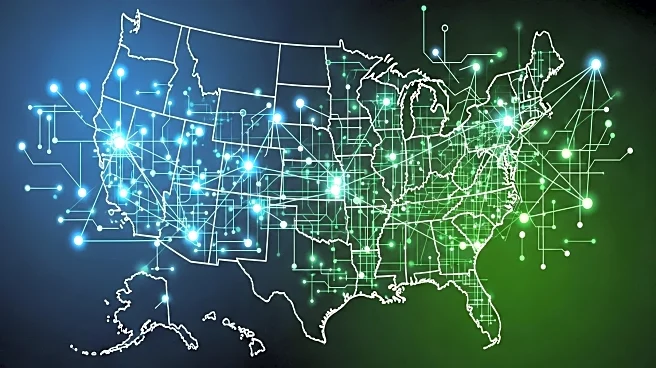What is the story about?
What's Happening?
The rapid expansion of data centers by major technology companies is putting significant pressure on U.S. electricity grids. Policymakers are considering measures to manage this demand, including potentially disconnecting data centers during power emergencies. This approach, first adopted by Texas, aims to prevent blackouts by reducing electricity consumption during peak demand periods. The proposal has sparked concern among power plant owners and the tech industry, who question the legal authority of grid operators like PJM Interconnection to enforce such measures. The governors of Pennsylvania, New Jersey, Illinois, and Maryland have expressed concerns about the unpredictability of this solution and advocate for incentives to encourage data centers to develop new power sources and voluntarily reduce electricity use.
Why It's Important?
The increasing energy demands of data centers are a critical issue as they threaten to overwhelm existing power grids, potentially leading to widespread blackouts. This situation highlights the need for a balance between technological advancement and sustainable energy consumption. The tech industry, which relies heavily on data centers for operations, could face disruptions if these facilities are disconnected during emergencies. Additionally, the rising electricity costs associated with meeting the energy needs of data centers could impact consumers, as they may indirectly subsidize these costs. The outcome of this situation could set a precedent for how energy-intensive industries are managed in the future, influencing both economic and environmental policies.
What's Next?
As the debate continues, stakeholders are likely to explore alternative solutions, such as incentivizing data centers to invest in renewable energy sources or develop their own power generation capabilities. Regulatory bodies may also consider implementing flexible standards that allow data centers to switch to backup power during emergencies. The tech industry and consumer advocates will likely push for transparency and fairness in any new regulations to ensure that electricity costs do not disproportionately affect consumers. The ongoing discussions and potential policy changes will be closely monitored by both the tech industry and energy regulators.















